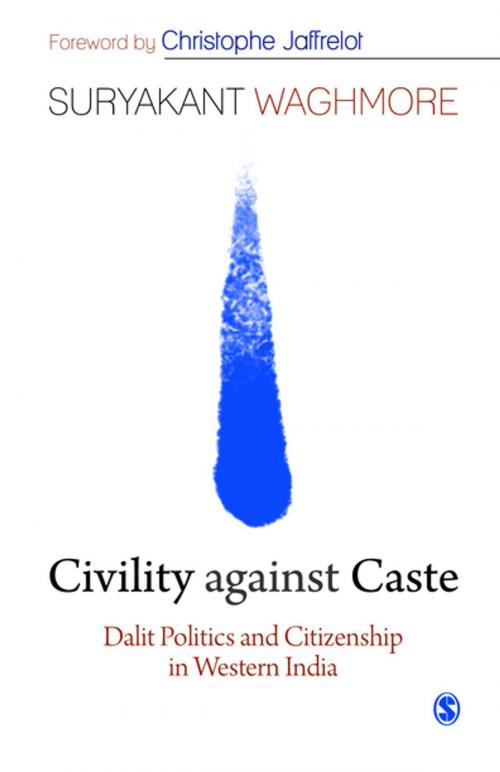Civility against Caste
Dalit Politics and Citizenship in Western India
Nonfiction, Social & Cultural Studies, Social Science, Sociology| Author: | Suryakant Waghmore | ISBN: | 9788132118138 |
| Publisher: | SAGE Publications | Publication: | September 30, 2013 |
| Imprint: | Sage Publications Pvt. Ltd | Language: | English |
| Author: | Suryakant Waghmore |
| ISBN: | 9788132118138 |
| Publisher: | SAGE Publications |
| Publication: | September 30, 2013 |
| Imprint: | Sage Publications Pvt. Ltd |
| Language: | English |
Civil society as an analytical concept is increasingly treated with suspicion in the study of politics in postcolonial societies. While engaging with Dalit struggles for civility, this book offers a critique of normative liberal assumptions of civil society and also counters the scholarship that rejects the idea and possibility of civil society in postcolonial societies.
Based on an ethnography of Dalit movements in Maharashtra, this book highlights the centrality of caste in constructing localized forms and processes of civil society. The study marks a shift from perspectives that either emphasize the role of the state in shaping civil society or totally ignore the role of caste in its formation. As one of the first books on the post-Panther phase of Dalit politics in Maharashtra, this book makes an important contribution. It reopens the debate on the nature and forms of Dalit assertion in the 1990s and looks beyond the ‘impasse’ in Dalit politics.
Civil society as an analytical concept is increasingly treated with suspicion in the study of politics in postcolonial societies. While engaging with Dalit struggles for civility, this book offers a critique of normative liberal assumptions of civil society and also counters the scholarship that rejects the idea and possibility of civil society in postcolonial societies.
Based on an ethnography of Dalit movements in Maharashtra, this book highlights the centrality of caste in constructing localized forms and processes of civil society. The study marks a shift from perspectives that either emphasize the role of the state in shaping civil society or totally ignore the role of caste in its formation. As one of the first books on the post-Panther phase of Dalit politics in Maharashtra, this book makes an important contribution. It reopens the debate on the nature and forms of Dalit assertion in the 1990s and looks beyond the ‘impasse’ in Dalit politics.















